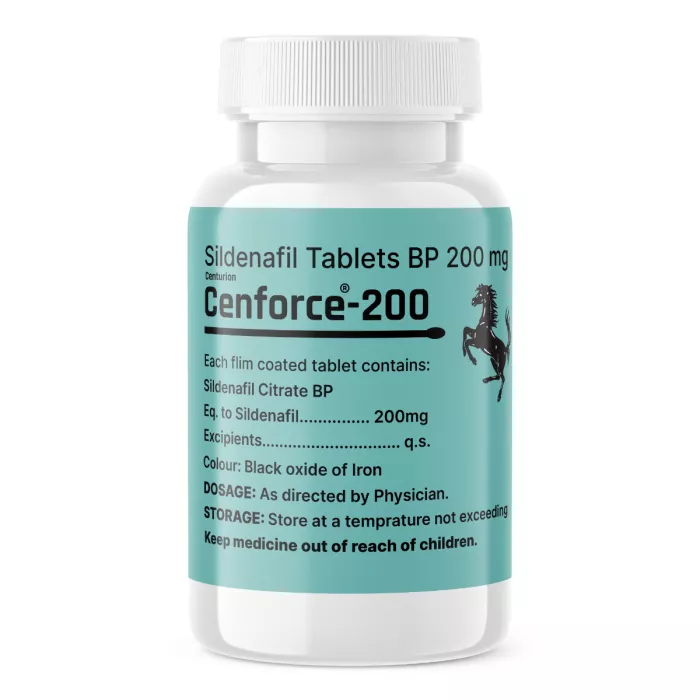Erectile Dysfunction (ED) is not merely a condition that affects intimacy; it is often a sign of something more serious happening in the body. Defined as the continuous inability to get or sustain a firm erection for sexual activity, ED can affect a man’s confidence and impact his quality of life.
While it may seem like a standalone issue, ED is frequently a symptom of bigger health concerns, ranging from cardiovascular disorders to hormonal imbalances or emotional distress.
This article explores the wide-ranging physical, psychological, and lifestyle-related Erectile Dysfunction causes, offering clarity on a condition that many hesitate to speak about.
What causes Erectile Dysfunction?
Erections involve a complex interaction between the brain, hormones, nerves, blood vessels, and muscles. When any of these systems are disrupted, ED can occur. The causes of sexual dysfunction like ED can vary from physical to psychological, lifestyle factors, to age.
Let us look deeper into the main causes of Erectile Dysfunction.
Save up to 90% on your medicine bills

Cenforce 200 mg

Kamagra Oral Jelly Rx 100 mg

Fildena 100 mg

Vidalista 60 mg
Physical Erectile Dysfunction causes
The majority of ED cases are linked to physical problems. These causes usually affect the blood flow, nerve signals, or hormonal balance necessary for a healthy erection.
Cardiovascular diseases
One of the most common physical causes of ED is poor blood flow due to heart or blood vessel problems. Conditions like Atherosclerosis (narrowing of the arteries), High Blood Pressure, and high cholesterol restrict blood flow, making it difficult to get or keep an erection.
Diabetes
Men with Diabetes are more likely to have ED. High sugar can damage nerves and blood vessels, both of which are needed for normal sexual function. Even with good Diabetes management, the risk of ED remains higher.
Hormonal imbalances
Testosterone is the main sex hormone in males, and its low levels can reduce sexual desire and cause ED. Conditions like Hypogonadism (a condition in which no sex hormones are produced in the body), thyroid issues, or even increased prolactin levels (a hormone produced by pituitary gland) can interfere with Testosterone production.
Neurological disorders
Diseases affecting the nervous system can affect the signals between your brain and the penis. Conditions such as Parkinson’s disease, Multiple Sclerosis (MS), spinal cord injuries, or stroke are all factors behind erectile issues.
Obesity
Excess body weight, mostly around the waist, is linked to ED. Obesity can lead to Diabetes, hormonal imbalances and heart issues, all of which contribute to ED.
Peyronie’s disease
This involves the growth of scar tissue inside the penis, which can lead to curved and painful erections. Men with Peyronie’s disease often experience erectile dysfunction due to pain or structural abnormalities.
Sleep disorders
Men with poor sleep patterns or diagnosed sleep disorders, such as Sleep Apnea, may also suffer from ED. Sleep plays a key role in Testosterone production and overall health.
Psychological causes of ED
Not all ED is caused by physical health issues. The brain helps in triggering the series of events that lead to an erection. Emotional or psychological problems can interfere with sexual feelings and performance.
Stress
High levels of stress, whether related to work, family, or finances, can affect sexual arousal and performance. Chronic stress affects the body’s hormone levels and blood flow, both of which are essential for erections.
Anxiety
Sexual Performance Anxiety (SPA) is a common issue affecting around 9-25% men. Worrying about sexual performance or the fear of not satisfying a partner can make a cycle of ED. Even a single episode of erectile failure can lead to further anxiety and recurring problems.
Depression
Depression leads to a loss of interest in many activities, including sex. It can also interfere with hormonal balance. Many antidepressant medications may worsen ED symptoms, creating a complex treatment challenge.
Relationship issues
Tension with a partner, lack of communication, or unresolved conflicts can affect sexual intimacy and lead to ED. Sometimes, emotional disconnect or a loss of attraction may contribute as well.
Low self-esteem
Men with poor body image, past sexual failures, or feelings of inadequacy may find it difficult to perform sexually. This lack of confidence can evolve into ongoing erectile dysfunction if not addressed.
Lifestyle factors that contribute to ED
Certain habits and daily routines can significantly affect sexual health. Lifestyle choices can either protect or put you at risk for erectile dysfunction.
Smoking, substance use, and medicines
Smoking damages blood vessels and slows blood flow to the penis. It also lowers Nitric Oxide (NO) levels in the blood, which are essential for erections. Drug abuse can damage blood vessels and lower sexual desire. Certain medications for High Blood Pressure, Depression, Anxiety, pain, or prostate conditions may also lead to ED as a side effect.
Alcohol consumption
Moderate drinking may not cause harm, but excessive or long-term alcohol use can dull the central nervous system, reduce Testosterone levels, and damage blood vessels.
Lack of physical activity
Exercise helps improve blood circulation, boost hormone levels, and reduce stress, all of which are good for erectile health. But a sedentary lifestyle contributes to Obesity and cardiovascular disease.
Unhealthy diet
A diet containing saturated fats, processed sugars, and salt can contribute to weight gain, Diabetes, and poor vascular health. Eating a balanced, heart-healthy diet can support sexual performance.
Poor sleep habits
Irregular sleep or not getting enough restful sleep can impact hormone levels, especially Testosterone. Lack of sleep also increases stress and fatigue, affecting sexual performance.
Age and Erectile Dysfunction
Although ED is more common in older men, aging alone does not cause it. However, the risk increases with age because older men are more likely to have medical conditions or take medications that contribute to Erectile Dysfunction. Men in their 40s, 50s, and beyond can still enjoy healthy sexual activity, provided they address the underlying causes of ED.
When to see a doctor
It is important to understand that Erectile Dysfunction is not just a sexual issue; it can be a sign of serious health problems. If you experience frequent difficulties with erections, it is advised to consult a doctor. Identifying the root cause early can lead to effective treatment and may uncover hidden health risks such as heart disease or Diabetes.
Conclusion
Erectile Dysfunction can arise from a wide range of causes. Physically, conditions like cardiovascular diseases, Diabetes, hormonal imbalances, neurological disorders, Obesity, Peyronie’s disease, sleep disorders, and certain medications play a major role.
Psychologically, stress, anxiety, depression, low self-esteem, and relationship issues can interfere with sexual function. Lifestyle factors like smoking, alcohol use, poor diet, little or no exercise, and irregular sleep further contribute to the problem.
While age can increase the risk, ED is not inevitable and is often treatable by addressing its root causes. For effective management, consult a doctor for a complete diagnosis and personalized treatment plan addressing these root causes.

Frequently Asked Questions
Can smoking weed everyday cause Erectile Dysfunction?
Yes, daily marijuana use may u003ca href=u0022https://www.cheapmedicineshop.com/blog/sexual-wellness/can-smoking-weed-everyday-cause-erectile-dysfunction/u0022u003econtribute to EDu003c/au003e. The active compound in weed can affect hormone levels, reduce sexual desire, and impair blood flow. Long-term use may also impact mental health and motivation, indirectly affecting sexual performance and increasing the risk of ED.
Does Lisinopril cause Erectile Dysfunction?
Although Lisinopril is used for managing blood pressure, it is less likely to cause ED than some other antihypertensives. In fact, it might improve sexual function by enhancing blood flow. However, side effects vary individually, and any new symptoms should be discussed with a doctor.
Does Metformin cause Erectile Dysfunction?
No, Metformin, commonly used for type 2 diabetes, does not directly cause ED. In fact, by improving blood sugar control and insulin sensitivity, it may help reduce ED risk over time. However, diabetes itself is a major cause of ED, so managing the condition with metformin is beneficial.
Can low vitamin D cause ED?
Yes, low vitamin D levels may be linked to ED. Vitamin D helps regulate blood flow and Testosterone levels, both vital for erections. Deficiency might contribute to vascular issues that affect erectile function. Supplementation can help if levels are low.
Cheap Medicine Shop only refers to credible, authoritative sources for our content. If you’re curious about how we ensure the integrity of our content, we encourage you to read our Content Information Policy.














